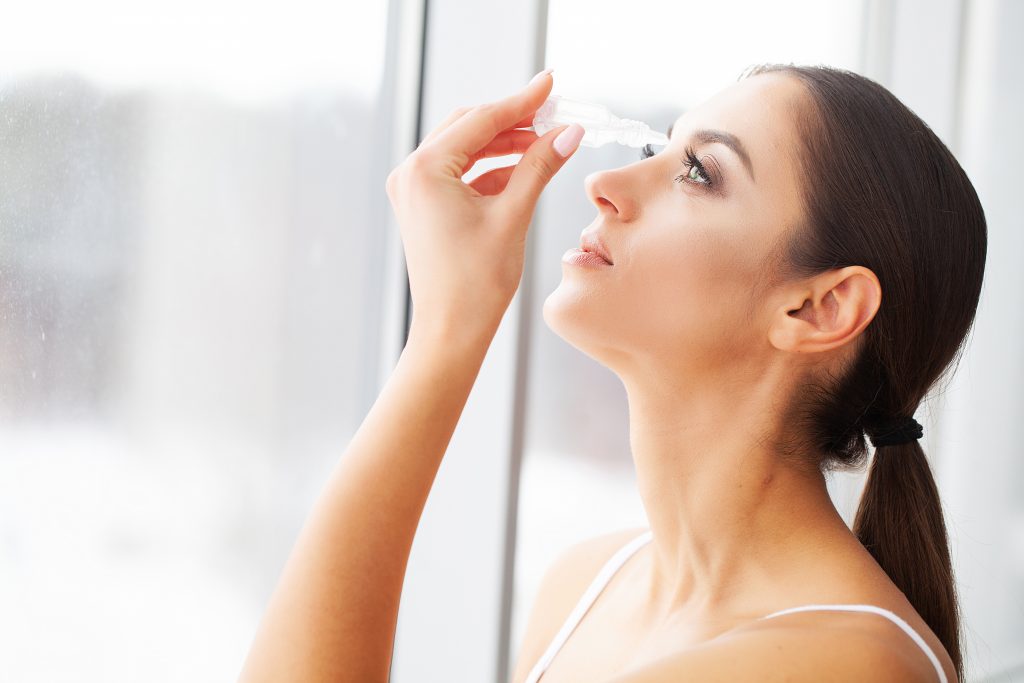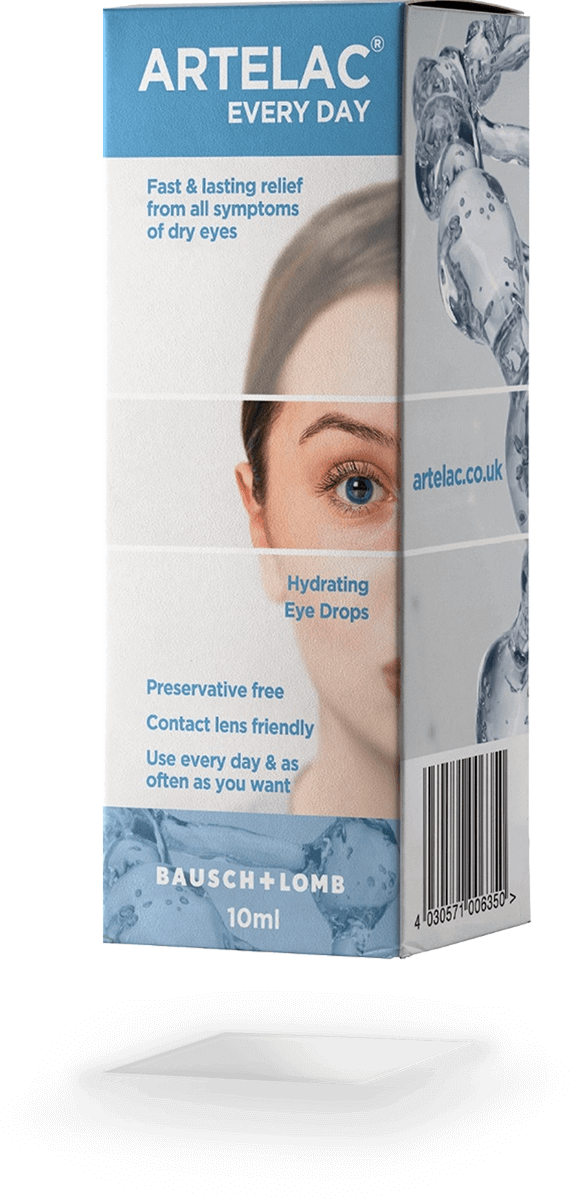When you don’t feel like wearing your glasses, switching to contact lenses can be a good alternative. In doing so, however, your eyes may start feeling more uncomfortable. Your lenses may be causing you to suffer with symptoms of Dry Eye Syndrome. These can occur when there are not enough tears – either through lack of production or evaporation – to keep your eye lubricated.
How can contact lenses cause dry eyes?
There are many reasons why you could be suffering with dry eye, from natural factors such as age to environmental reasons including air conditioning and heating. However, contact lenses can also bring on the condition.
This is because the thin layer of lens material on your cornea sits on the tear film and can cause it to split making it unstable.1

This can be a big problem for lens wearers who sometimes find they want to stop wearing lenses altogether. Studies have shown that dry eye is one of the biggest concerns for the 40% of soft contact lens wearers who quit wearing contacts within three years2. However there are things that can be done to ease any irritation or discomfort.
What are the symptoms?
When you’re experiencing dry eye, your eyes can feel[1]:
- Red & Itchy
- Gritty
- Sore
- Tired
Vision can seem blurred and you may become more sensitive to light.
How can contact lens discomfort be helped?
When wearing contact lenses it is important to follow the correct handling regime, not only to help alleviate symptoms of dry eye but also to ensure eyes are kept clean and any risk of infection is limited.
This means it is vital to ensure hands are clean and dry when handling your lenses, you use fresh lenses when required (usually monthly or daily), and that you change the solution they are in each day.
It is also important to never sleep in your contact lenses, unless directed to do so by your optician.
If you feel your eyes becoming dry throughout the day you could also try going lens free for a couple of hours to give your eyes a rest, or going back to the optician to try different contact lens options.
Alternatively, contact lens friendly lubricating eye drops could help get some much needed moisture back into the eye.

Getting enough vitamins and minerals in your diet is also advised – particularly vitamin A, D and omega-3, which could help with dry eye symptoms[1] [2].
However, if you’re still experiencing discomfort, you should make an appointment with your optician to discuss other lens options which may be more suitable. There is a wide variety of lenses out there, some with different water contents, some made with different materials and even some which have been produced with dry eye in mind[3], so there are many to try to find the ones right for you.
References
- Kopf, M., Yi, F., et al., 2008. Tear Film Surface Quality with Soft Contact Lenses Using Dynamic Videokeratoscopy. NCBI, [e-journal] 1(1), pp.14–21.: https://www.ncbi.nlm.nih.gov/pmc/articles/PMC3972648/
- Markoulli, M., Kolanu, S, Contact lens wear and dry eyes: challenges and solutions. NCBI, [e-journal] 9, pp. 41–48. https://www.ncbi.nlm.nih.gov/pmc/articles/PMC6095561/
- National Eye Institute: Dry eye. Available online at: https://www.nei.nih.gov/learn-about-eye-health/eye-conditions-and-diseases/dry-eye Accessed on February 2020
- Medical News Today: Which vitamins are good for dry eyes? Available online at: https://www.medicalnewstoday.com/articles/315270.php Accessed on November 2019
- Jesús Tellez-Vazquez, 2016. Omega-3 fatty acid supplementation improves dry eye symptoms in patients with glaucoma: results of a prospective multicenter study. NCBI, [e-journal] 1, pp. 617–626 https://www.ncbi.nlm.nih.gov/pmc/articles/PMC4827597/
- Healthline: Contact lenses for dry eyes. Available online at: https://www.healthline.com/health/great-contact-lenses-dry-eyes Accessed on February 2020
- Medical News Today: Which vitamins are good for dry eyes? Available online at: https://www.medicalnewstoday.com/articles/315270.php Accessed on November 2019
- Jesús Tellez-Vazquez, 2016. Omega-3 fatty acid supplementation improves dry eye symptoms in patients with glaucoma: results of a prospective multicenter study. NCBI, [e-journal] 1, pp. 617–626 https://www.ncbi.nlm.nih.gov/pmc/articles/PMC4827597/
- Healthline: Contact lenses for dry eyes. Available online at: https://www.healthline.com/health/great-contact-lenses-dry-eyes Accessed on February 2020

